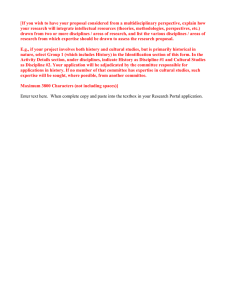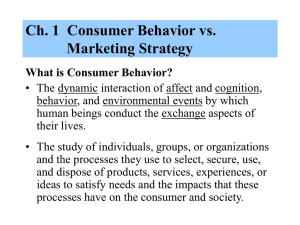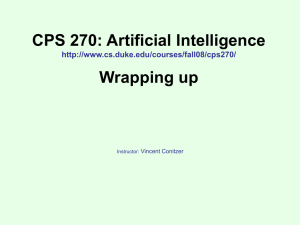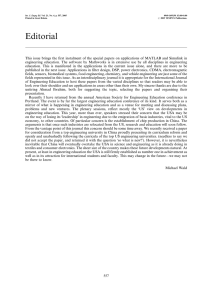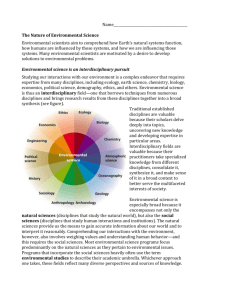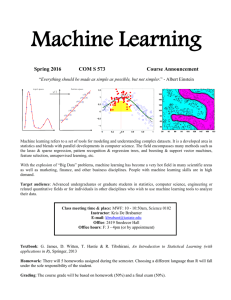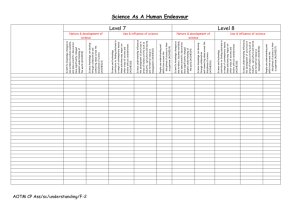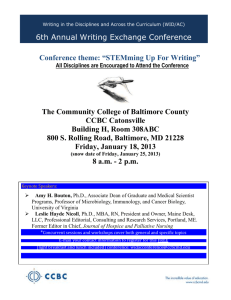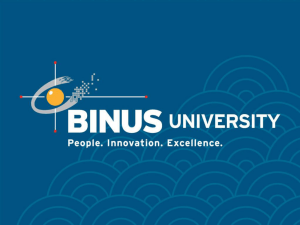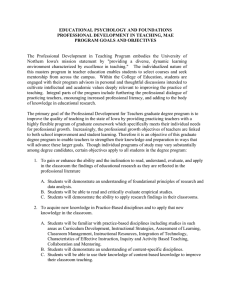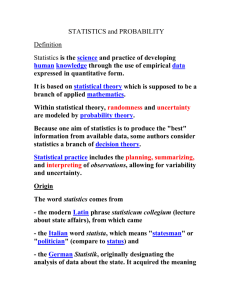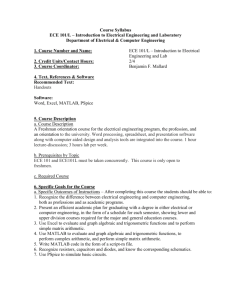UNIV courses expectations.
advertisement
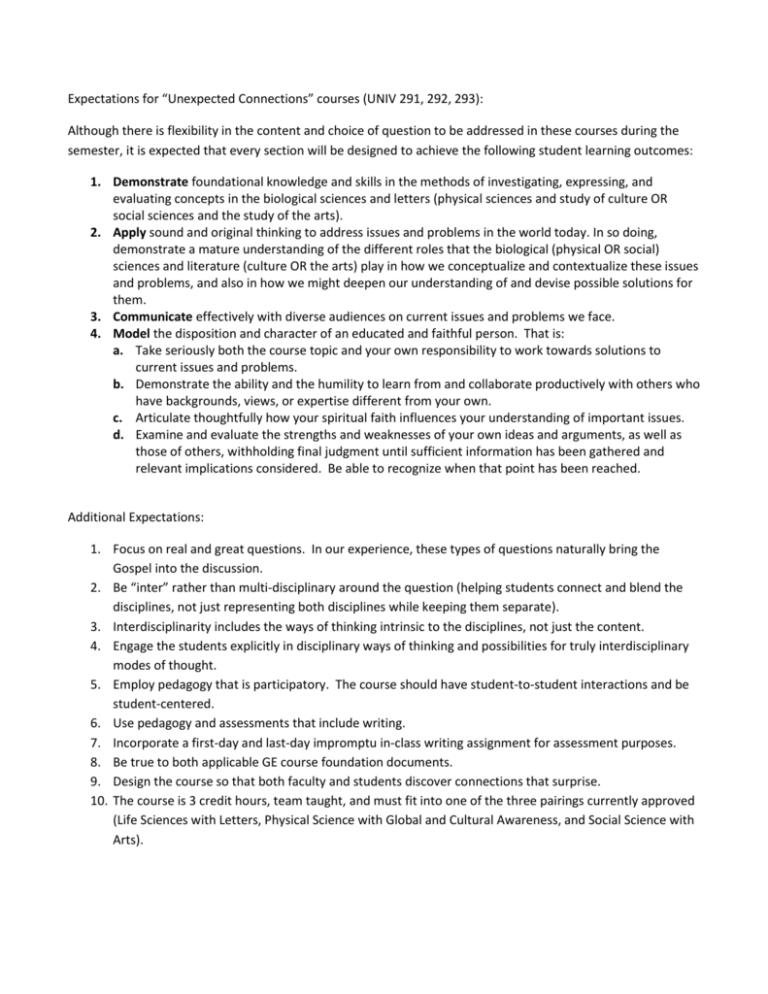
Expectations for “Unexpected Connections” courses (UNIV 291, 292, 293): Although there is flexibility in the content and choice of question to be addressed in these courses during the semester, it is expected that every section will be designed to achieve the following student learning outcomes: 1. Demonstrate foundational knowledge and skills in the methods of investigating, expressing, and evaluating concepts in the biological sciences and letters (physical sciences and study of culture OR social sciences and the study of the arts). 2. Apply sound and original thinking to address issues and problems in the world today. In so doing, demonstrate a mature understanding of the different roles that the biological (physical OR social) sciences and literature (culture OR the arts) play in how we conceptualize and contextualize these issues and problems, and also in how we might deepen our understanding of and devise possible solutions for them. 3. Communicate effectively with diverse audiences on current issues and problems we face. 4. Model the disposition and character of an educated and faithful person. That is: a. Take seriously both the course topic and your own responsibility to work towards solutions to current issues and problems. b. Demonstrate the ability and the humility to learn from and collaborate productively with others who have backgrounds, views, or expertise different from your own. c. Articulate thoughtfully how your spiritual faith influences your understanding of important issues. d. Examine and evaluate the strengths and weaknesses of your own ideas and arguments, as well as those of others, withholding final judgment until sufficient information has been gathered and relevant implications considered. Be able to recognize when that point has been reached. Additional Expectations: 1. Focus on real and great questions. In our experience, these types of questions naturally bring the Gospel into the discussion. 2. Be “inter” rather than multi-disciplinary around the question (helping students connect and blend the disciplines, not just representing both disciplines while keeping them separate). 3. Interdisciplinarity includes the ways of thinking intrinsic to the disciplines, not just the content. 4. Engage the students explicitly in disciplinary ways of thinking and possibilities for truly interdisciplinary modes of thought. 5. Employ pedagogy that is participatory. The course should have student-to-student interactions and be student-centered. 6. Use pedagogy and assessments that include writing. 7. Incorporate a first-day and last-day impromptu in-class writing assignment for assessment purposes. 8. Be true to both applicable GE course foundation documents. 9. Design the course so that both faculty and students discover connections that surprise. 10. The course is 3 credit hours, team taught, and must fit into one of the three pairings currently approved (Life Sciences with Letters, Physical Science with Global and Cultural Awareness, and Social Science with Arts).
